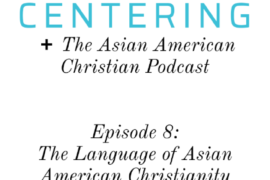
[Bill Watanabe is a legend in the Los Angeles Japanese American community. Born in the Manzanar concentration camp during World War II, he founded the Little Tokyo Service Center in 1980. He is a Christian and a founding member of Asian-American and Pacific Islander Christians for Social Justice.
With Bill’s permission, we are reprinting several of his pieces originally published in the Rafu Shimpo. We believe that his wisdom and experiences are invaluable resources for our contemporary Asian American Christian community. – Editor]
My wife’s Uncle Cecil was a bona-fide mechanical genius who regaled us with fascinating stories about his days as a young inventor in San Pedro before WW2. He told us, when he was 12 years old, he built a portable power generator which he sold for a handsome price to a road construction company. He proudly described to us how he built a world-class ham radio by the age of 14 years with a towering antennae – which he said was one of the most powerful setups in the world at that time. When he graduated high school, he sold his ham radio equipment and antennae to the local radio station who bought it and they acknowledged to him that his equipment was better and more powerful than theirs!
Uncle Cecil graduated with an engineering degree from USC around 1936 and discovered to his dismay that no one would hire him. In desperation, he took on a welder’s job at a fishing-boat repair shop in San Pedro. Very quickly he became a master at repairing fishing boats and because many of the fishing boats were manufactured in Europe, the parts needed for repair were embargoed by the government due to the conflicts in Europe so he made the parts by hand.
“Uncle Cecil could fly to the rescue, land on the ocean and repair the boat on the spot”
In the meantime, Uncle Cecil got a pilot’s license and rented a plane and by 1940 he was the “Red Adair” of the fishing boat repair business. (You may have to Google “Red Adair” since he was famous a long time ago). If a fishing boat broke down way out in the Pacific, or the refrigeration unit stopped working, the whole cargo of frozen fish could be lost and this meant financial disaster. Uncle Cecil could fly to the rescue, land on the ocean and repair the boat on the spot – and he could command a huge fee because it was either pay up or lose the cargo.
By 1941, Uncle Cecil’s business was booming and he now had his own plane, maps of the ocean and sophisticated radio equipment powerful enough to cover the whole eastern Pacific. He had big dreams and so he invested all the money he had to build his own special mechanized boat dock for maintaining and repairing fishing boats and he was well on his way to become the premiere fishing boat repair company.
I thought of Uncle Cecil recently when I was reading a book by noted author Naomi Hirahara called “Terminal Island – Lost Communities of Los Angeles Harbor” which describes the colorful history of a place once known as “Terminal Island” but that neighborhood is long-gone and is now the huge Los Angeles/Long Beach harbors.
“When WW2 began, all the Japanese on Terminal Island were quickly rounded up and incarcerated in remote prisons.”
At one time Terminal Island was a dense Nikkei neighborhood focused around the fishing industry which the Japanese dominated for decades from the early 1900’s until the bombing of Pearl Harbor. When WW2 began, all the Japanese on Terminal Island were quickly rounded up and incarcerated in remote prisons.
The bombing of Pearl Harbor by Japan caused great fear and anxieties for many Americans, especially those on the West Coast. These fears caused people in power to pass laws and implement policies that were often beyond reason or common sense – and when people in power combine anxieties with prejudice, then even the outlandish and ridiculous becomes possible and real. (Sound familiar?)
“when people in power combine anxieties with prejudice, then even the outlandish and ridiculous becomes possible and real”
Naomi describes how for many years the Japanese immigrant fishermen had been discriminated against by local politicians who were trying to eliminate the competition of the Issei commercial fishermen. Leading up to the days before the outbreak of war, the Congressional Special Committee on Un-American Activities sent investigators to Terminal Island to assess the potential for “treasonable activities” by Japanese fishermen. While it is true that many Issei maintained social ties with kin and friends in the Japanese navy who often visited naval facilities on the West Coast, there was no evidence of any treasonable activities. Even the cannery owners (mostly white folks) vouched for the loyalty of the Japanese fishermen.
Nevertheless, the investigators reported that “Japanese-owned fishing boats could be converted to ‘naval craft’ and become a security menace”. They also reported that “one thousand Japanese are trained pilots and familiar with harbor and coastline”. They described kenjinkai groups as “pressure groups”, the Shinto temple as a “cult”, and were alarmed at the existence of a Japanese military veterans association – which is not so strange since many Issei served in the Japanese military before coming to the US.
“investigators reported that “Japanese-owned fishing boats could be converted to ‘naval craft’ and become a security menace””
After the war began, the government immediately picked up Uncle Cecil. He definitely fit the profile described in the federal investigators’ report as a “trained pilot and familiar with harbor and coastline” and with all of his maps, plane, radio equipment, and mechanical tools he might appear to be a dangerous spy but in actuality he was the farthest thing from a Japanese operative. Uncle Cecil was an American-born Nisei and had never been to Japan and couldn’t even speak the language! Uncle Cecil lost everything when the FBI targeted him and swooped in after Pearl Harbor and confiscated everything he had. After WW2 Uncle Cecil moved to Chicago and never returned to San Pedro.
Fear and prejudice can cause governments to do bad things to people – a lesson that should never be forgotten nor repeated.



2 Comments
Pingback: relaxing jazz
Pingback: nature sound